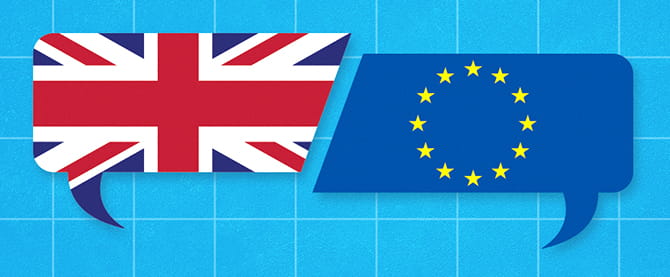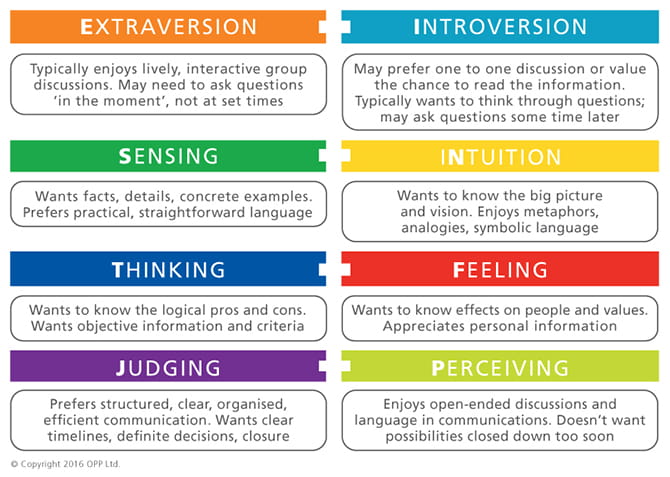MBTI, communication and the Brexit phoney war
John Hackston, Head of Research at OPP
In the immediate aftermath of the EU referendum vote, many commentators, including us here at OPP, speculated on what would come next. Several months further on, three things are clear: one, Brexit is extremely likely to happen; two, we may now have something approaching a timeline; and three, nothing else is very clear at all. All of which raises the thorny question of how organisations can best engage and communicate with their employees, both during the current Brexit ‘phoney war’ (we know that it’s going to happen, but nothing has actually happened yet), and later as the changes start to bite.

Employees are of course not just cogs in the organisational machine – they are people with their own lives outside work, and as such they will likely have been affected by Brexit in a whole host of ways. We know that, whether Brexit turns out to be a good or a bad thing, there are likely to be turbulent times ahead. Remainer or Brexiteer, people tend to go through a similar range of emotions to major change – shock, denial, anger and depression. This means that many employees are more suspicious and cynical, and less accepting than normal, so it is important that company communications are put together very carefully.
So, individual leaders and managers of organisations need to think carefully about how they put the message across. Understanding one’s own style, for example by using instruments like the Myers-Briggs Type Indicator (MBTI), can be really useful here. Depending on our personality, each of us prefers to be communicated to in a certain way. Some people want facts and details, others the big picture. Some want to know that a decision is logical; others are concerned with how it will affect people. Some like written communication that they can study; others want the chance to discuss things in a group.

For communications to be impactful, organisations need to make sure that all of these needs are met in the different communications, presentations, meetings and so on.
One thing to remember here is that each of us can overuse our own favourite style of communication, forgetting that it may not work for everyone; unfortunately, when we become stressed, or when we are in a hurry, this tends to get worse. We’ve seen this, for example, in our recent research into MBTI Type and email communication. Knowing a little about how we react to and recover from stress can be a real help – it can help us self correct or at least notice when we are out of balance. Combine this with understanding our own and other people’s communication styles and you’re on your way to effective communication in these strange, unknown and stressful times.